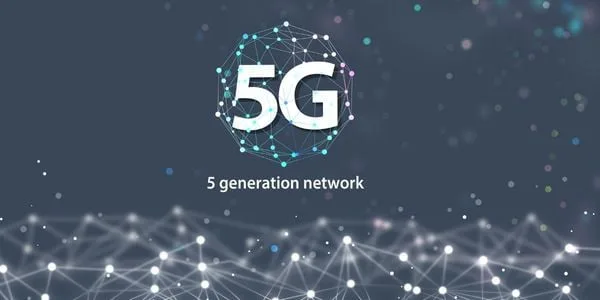Artificial Intelligence Is Revolutionizing Daily Living
Artificial Intelligence (AI) has rapidly transformed our world, infiltrating almost every aspect of our lives. From self-driving cars to medical diagnoses, AI is proving its worth. But perhaps, one of the most exciting frontiers for AI is within the very walls of our homes. The integration of AI into our daily living spaces is not just a trend; it’s a revolution that’s changing the way we live, work, and play. In this article, we’ll delve into how AI is revolutionizing daily living and making our homes smarter and more efficient.
AI-Powered Assistants: Your Intelligent Companions
Siri, Alexa, Google Assistant: The Digital Sidekicks
AI-powered voice assistants have become our digital companions. Siri, Alexa, and Google Assistant are just a few examples of these conversational AI interfaces that can answer questions, play music, control smart home devices, and even crack a joke or two. These virtual assistants are integrated into our smartphones and smart speakers, making them easily accessible.
The beauty of these AI companions lies in their adaptability. They learn from your commands and adapt to your preferences over time. If you often ask for weather updates, your AI assistant will start delivering them without you having to prompt it. They can set reminders, send messages, and even help you control other smart devices in your home.
Home Automation: AI as Your Personal Butler
Imagine walking into your home, and the lights automatically adjust to your preferred brightness, the thermostat sets itself to the perfect temperature, and your favorite music starts playing as you enter the living room. This isn’t a scene from a sci-fi movie; it’s the reality of smart homes powered by AI.
AI-driven home automation systems are becoming increasingly sophisticated. They can predict your needs based on your habits and adjust your home environment accordingly. They optimize energy consumption, making your home eco-friendly, and they enhance security through smart locks, cameras, and motion sensors.
AI in Entertainment: Entertainment Tailored to You
Content Recommendations: Netflix Knows What You Want
One of the most evident ways AI is enhancing our daily lives is through personalized content recommendations. Platforms like Netflix and Spotify use AI algorithms to analyze your viewing and listening habits. Based on your history, they suggest movies, shows, and music that you’re likely to enjoy.
This level of personalization keeps you engaged and entertained. You spend less time searching for content and more time actually enjoying it. It’s like having your own personal movie critic or music curator.
Gaming: AI That Learns and Adapts
If you’re a gamer, AI has probably been a part of your experience for a while. But AI in gaming is evolving beyond just providing challenging opponents. Now, AI can learn and adapt to your playing style.
In games like “The Last of Us Part II,” the AI of enemy characters adapts to your strategies. They learn from your actions, making each encounter unique and challenging. This level of AI-driven interactivity takes gaming to a whole new level.
AI in Health: Your Personal Health Assistant
Remote Health Monitoring: Doctor AI Is In
Especially in the wake of global health crises, the role of AI in healthcare has never been more crucial. Remote health monitoring using AI is becoming a reality. Wearable devices can track your vital signs and notify you of any irregularities. Your AI-powered health assistant can even contact medical professionals in case of emergencies.
But it’s not just about emergencies. AI can help you maintain a healthier lifestyle. It can suggest personalized exercise routines, monitor your sleep patterns, and recommend dietary adjustments based on your health goals.
Diagnostics and Treatment: AI as a Medical Marvel
AI isn’t just about monitoring; it’s also about diagnosis and treatment. Machine learning algorithms are being trained to detect diseases, analyze medical images, and even recommend treatment plans.
For instance, IBM’s Watson can analyze vast amounts of medical data to assist doctors in making more accurate diagnoses and suggesting potential treatment options. AI’s ability to process and understand complex medical information is a game-changer in healthcare.
AI in Education: A Personalized Learning Experience
AI Tutors: Learning Tailored to You
The traditional classroom experience is undergoing a transformation with the help of AI. AI tutors are becoming a reality, providing personalized learning experiences to students. These AI-driven systems adapt the curriculum based on the student’s progress and learning style.
Whether you’re a school student or an adult looking to acquire new skills, AI can cater to your individual learning needs. It can provide additional resources when you’re struggling with a concept or accelerate your learning when you’re excelling.
AI in Work: Your Efficient Colleague
Virtual Assistants: Streamlining Work
AI doesn’t stop when you leave the home. It follows you to the workplace in the form of virtual assistants. These AI-powered colleagues can help schedule meetings, manage your email, and provide insights into your daily tasks.
They’re like having a personal assistant, but without the overhead cost. You can focus on more creative and strategic aspects of your work, leaving the routine tasks to AI.
Conclusion
Artificial Intelligence is not just a buzzword; it’s a transformational force that’s shaping the way we live. From simplifying our daily routines through home automation to enhancing our entertainment experiences and even revolutionizing healthcare and education, AI is woven into the fabric of modern life. As AI continues to advance, we can expect even greater integration into our homes and daily lives, making our interactions with technology more intuitive and personalized than ever before.
FAQs
1. How secure is AI in smart homes?
AI in smart homes is as secure as the devices and networks it operates on. Manufacturers continuously work to improve security measures. Users can enhance security by regularly updating devices and using strong, unique passwords.
2. Can AI-powered health assistants replace doctors?
AI-powered health assistants can provide valuable monitoring and insights, but they cannot replace the expertise of medical professionals. They complement healthcare services by offering early detection and assistance.
3. How does AI personalize educational content?
AI personalizes educational content by analyzing a student’s performance and learning style. It adapts the curriculum to focus on areas where the student needs improvement and provides additional resources for deeper understanding.
4. Are AI virtual assistants capable of handling complex tasks at work?
AI virtual assistants can handle a wide range of tasks at work, including scheduling, data analysis, and communication management. While they excel in routine and repetitive tasks, they may not replace human decision-making in complex situations.
5. What is the future of AI in daily living?
The future of AI in daily living is promising. We can expect even greater integration of AI into our homes, workplaces, and daily routines. AI will continue to enhance convenience, personalization, and efficiency in our lives.







